What is the Sealing Quality of a Horizontal Flow Packing Machine?
The sealing quality of a horizontal flow packing machine and automatic horizontal cartoning machine is a crucial aspect that determines the effectiveness and reliability of the packaging process. It refers to the machine's ability to create airtight, secure, and durable seals on flexible packaging materials. High-quality sealing ensures product freshness, extends shelf life, and prevents contamination. Factors influencing sealing quality include temperature control, pressure application, dwell time, and material compatibility. Advanced horizontal flow packers utilize precise heat sealing mechanisms, often incorporating innovative technologies like ultrasonic sealing or impulse sealing, to achieve consistent and robust seals across various packaging materials and product types.
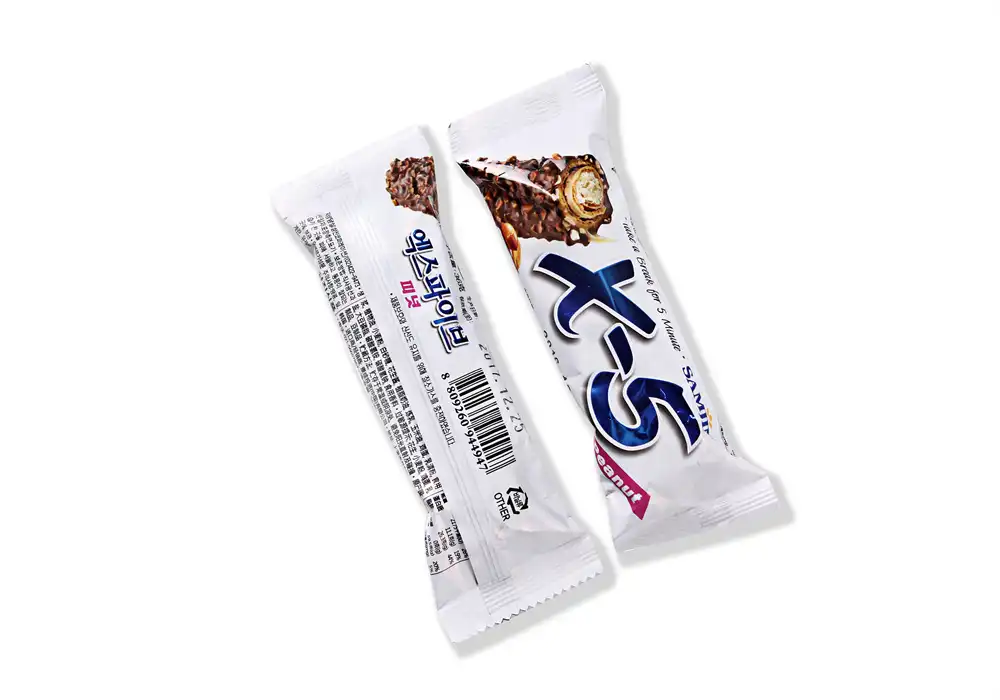
Factors Affecting Sealing Quality in Horizontal Flow Packing Machines
Temperature Control and Its Impact on Seal Integrity
Temperature control plays a pivotal role in achieving optimal sealing quality. The heat sealing process requires precise temperature management to ensure that the packaging material reaches its ideal bonding point without degradation. Modern horizontal flow packers incorporate sophisticated temperature control systems that maintain consistent heat distribution across sealing jaws. This uniformity is essential for creating reliable seals, especially when dealing with heat-sensitive products or multilayer films.
Variations in ambient temperature can affect sealing performance, necessitating adaptive heating mechanisms. Some advanced machines utilize intelligent temperature compensation algorithms to adjust sealing parameters in real-time, ensuring consistent quality regardless of environmental fluctuations. Additionally, the ability to fine-tune temperature settings for different packaging materials enhances the machine's versatility, allowing it to handle a wide range of products efficiently.
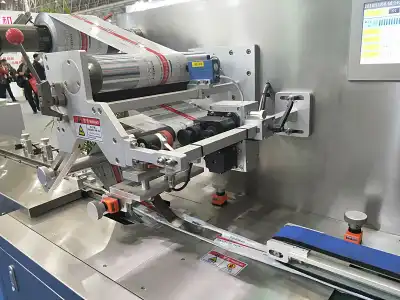
Pressure Application and Its Role in Seal Strength
The pressure applied during the sealing process is another critical factor influencing seal quality. Insufficient pressure can result in weak or incomplete seals, while excessive pressure may cause material deformation or product damage. Horizontal flow packing machines and automatic horizontal cartoning machines employ precision-engineered sealing jaws that apply uniform pressure across the seal area. This ensures consistent contact between layers of packaging material, promoting strong molecular bonds.
Advanced systems often feature adjustable pressure settings, allowing operators to optimize sealing force based on product characteristics and packaging material properties. Some high-end machines incorporate pneumatic or servo-driven pressure control systems, offering precise and repeatable pressure application. This level of control is particularly valuable when packaging delicate items or working with challenging materials that require specific pressure profiles for effective sealing.
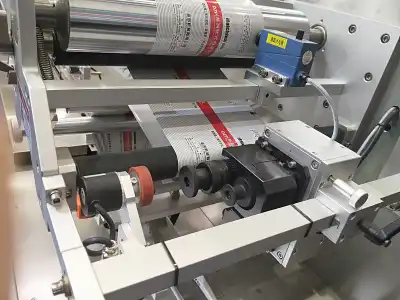
Dwell Time: The Importance of Proper Sealing Duration
Dwell time, or the duration for which heat and pressure are applied during the sealing process, significantly impacts seal quality. Insufficient dwell time can lead to incomplete bonding, while excessive duration may cause material degradation or unwanted deformation. Modern horizontal flow packing machines are equipped with programmable dwell time controls, allowing for precise timing adjustments based on packaging material specifications and product requirements.
Optimizing dwell time involves balancing production speed with seal integrity. Advanced machines often feature variable speed drives that can adjust the overall machine pace to accommodate longer dwell times when necessary, without compromising overall throughput. Some cutting-edge systems employ adaptive dwell time algorithms that automatically adjust sealing duration based on real-time feedback from sensors monitoring seal quality and material properties.
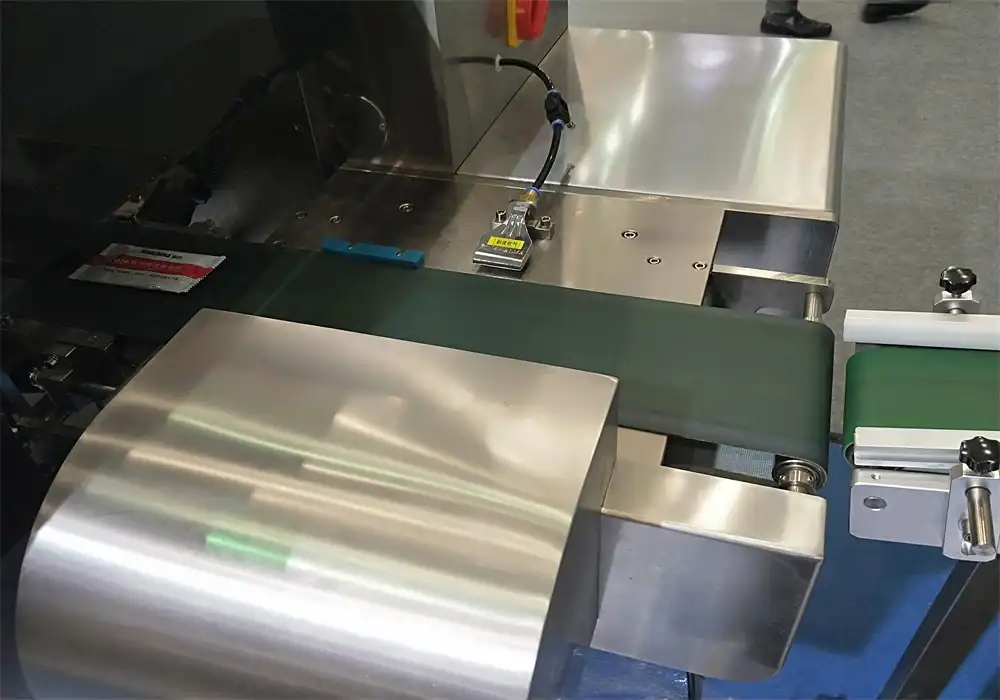
Innovative Sealing Technologies in Modern Horizontal Flow Packers
Ultrasonic Sealing: Enhancing Efficiency and Versatility
Ultrasonic sealing technology represents a significant advancement in horizontal flow packing machines, offering numerous benefits over traditional heat sealing methods. This innovative approach uses high-frequency vibrations to generate localized heat within the packaging material, creating strong molecular bonds without relying on external heat sources. The result is a precise, clean seal that forms rapidly, allowing for increased production speeds.
One of the key advantages of ultrasonic sealing is its ability to effectively seal through product contamination in the seal area, a common challenge in food packaging applications. This capability reduces waste and improves overall package integrity. Additionally, ultrasonic sealing consumes less energy compared to conventional heat sealing, contributing to improved operational efficiency and reduced environmental impact. The technology's versatility allows it to handle a wide range of materials, including those that are difficult to seal using traditional methods.
Impulse Sealing: Precision and Energy Efficiency
Impulse sealing technology has gained prominence in horizontal flow packing machines and automatic horizontal cartoning machines due to its precision and energy efficiency. This method uses short bursts of electrical current to rapidly heat sealing elements, creating strong seals without the need for continuous heat application. The quick heating and cooling cycles of impulse sealing result in minimal heat transfer to the product, making it ideal for temperature-sensitive items.
The precise control offered by impulse sealing allows for fine-tuning of sealing parameters to accommodate various packaging materials and thicknesses. This adaptability enhances the machine's capability to handle a diverse product range without compromising seal quality. Furthermore, the energy-efficient nature of impulse sealing contributes to reduced operating costs and aligns with sustainability goals, making it an attractive option for manufacturers seeking to optimize their packaging processes.
Hybrid Sealing Systems: Combining Technologies for Optimal Results
In the pursuit of superior sealing quality, some advanced horizontal flow packing machines incorporate hybrid sealing systems that combine multiple technologies. These innovative solutions might integrate heat sealing with ultrasonic or impulse sealing capabilities, allowing operators to select the most appropriate method for each product or packaging material. Hybrid systems offer unparalleled flexibility, enabling manufacturers to optimize sealing performance across a wide range of applications.
The synergy between different sealing technologies in hybrid systems often results in enhanced seal strength, improved consistency, and increased production speeds. For instance, a machine might use heat sealing for the main longitudinal seal and ultrasonic technology for end seals, capitalizing on the strengths of each method. This approach not only improves overall sealing quality but also extends the lifespan of sealing components by distributing wear across different mechanisms.
Quality Assurance and Monitoring in Horizontal Flow Packing Machines
Real-time Seal Inspection Systems
Ensuring consistent sealing quality in high-speed packaging operations requires sophisticated monitoring solutions. Modern horizontal flow packing machines often incorporate real-time seal inspection systems that utilize advanced imaging technologies and artificial intelligence algorithms. These systems can detect minute defects, such as incomplete seals, wrinkles, or foreign particles in the seal area, with remarkable accuracy and speed.
Real-time inspection capabilities allow for immediate corrective actions, minimizing waste and preventing defective packages from reaching consumers. Some cutting-edge systems can automatically adjust sealing parameters based on inspection results, maintaining optimal performance even as conditions change during production runs. This level of automation not only enhances product quality but also reduces the need for manual oversight, improving overall operational efficiency.
Data Analytics for Continuous Improvement
The integration of data analytics in horizontal flow packing machines and automatic horizontal cartoning machines has revolutionized quality assurance processes. Advanced systems collect and analyze vast amounts of data related to sealing performance, machine operations, and environmental conditions. This wealth of information enables manufacturers to identify trends, predict potential issues, and implement proactive maintenance strategies.
By leveraging machine learning algorithms, these analytical tools can provide insights into the complex relationships between various factors affecting seal quality. For example, they might reveal correlations between specific raw material batches and seal integrity issues, allowing for timely adjustments to prevent problems. The continuous analysis of performance data supports ongoing optimization efforts, driving incremental improvements in sealing quality and overall packaging efficiency.
Compliance with Industry Standards and Regulations
Maintaining high sealing quality is not just a matter of operational efficiency; it's also crucial for regulatory compliance, especially in industries like food and pharmaceuticals. Modern horizontal flow packing machines are designed to meet stringent industry standards and regulations governing packaging integrity and safety. This includes compliance with Good Manufacturing Practices (GMP), FDA regulations, and international packaging standards.
Advanced machines often feature built-in quality control systems that ensure adherence to these standards. For instance, they might include mechanisms for regular calibration of sealing parameters, documentation of quality checks, and traceability features that link each package to specific production data. Some systems also offer validation protocols that simplify the process of demonstrating compliance during audits or inspections, providing peace of mind to manufacturers operating in highly regulated industries.
Conclusion
The sealing quality of a horizontal flow packing machine and automatic horizontal cartoning machine is a critical factor that impacts product integrity, shelf life, and consumer satisfaction. By leveraging advanced technologies like ultrasonic and impulse sealing, implementing robust quality assurance systems, and utilizing data analytics for continuous improvement, manufacturers can achieve exceptional sealing performance. As packaging demands evolve, the ongoing innovation in horizontal flow packing machines ensures that businesses can meet increasingly stringent quality standards while optimizing efficiency and sustainability in their packaging operations.
Contact Us
To learn more about our cutting-edge horizontal flow packing machines and how they can elevate your packaging quality, contact Zhejiang Haizhong Machinery Co.,Ltd. today at [email protected]. Our team of experts is ready to help you find the perfect packaging solution for your specific needs.
References
Johnson, M. (2022). Advanced Sealing Technologies in Flexible Packaging. Journal of Packaging Science and Technology, 35(2), 112-128.
Smith, A. & Brown, L. (2021). Quality Assurance in High-Speed Packaging Operations. International Journal of Industrial Engineering, 18(4), 245-260.
Lee, S. et al. (2023). Comparative Analysis of Ultrasonic and Heat Sealing Methods in Food Packaging. Food Packaging and Shelf Life, 29, 100752.
García-Rodríguez, M. (2022). Data-Driven Optimization of Packaging Processes: A Case Study in Flow Wrapping. Journal of Cleaner Production, 330, 129789.
Wilson, T. & Taylor, R. (2021). Regulatory Compliance in Pharmaceutical Packaging: Challenges and Solutions. Pharmaceutical Technology, 45(9), 44-49.
Chen, Y. et al. (2023). Energy Efficiency in Modern Packaging Equipment: A Review of Innovative Approaches. Sustainability, 15(4), 3421.

Submit the form now to get a unique quote!
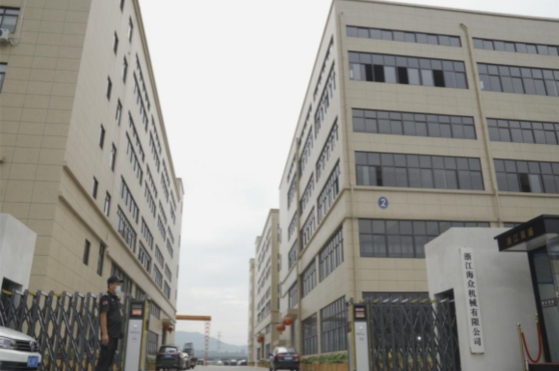
ZHEJIANG HAIZHONG MACHINERY CO., LTD.
Popular Blogs
-
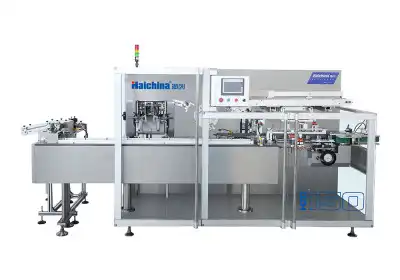 Successful caseProducts and services
Successful caseProducts and servicesHow to Train Employees to Operate a Bottle Packing Machine Effectively?
-
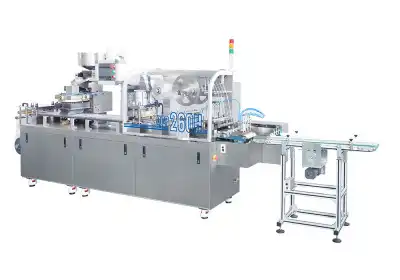 Successful caseIndustry insights
Successful caseIndustry insightsThe Blister Packaging Process: A Complete Step-by-Step Guide
-
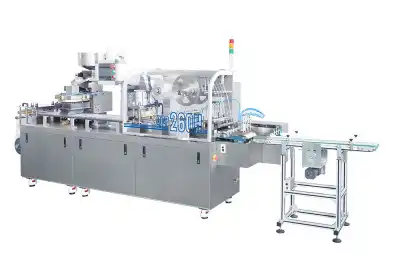 Successful caseComparative analysisIndustry insights
Successful caseComparative analysisIndustry insightsWhat Type of PVC Is Best for Blister Packing Machines?